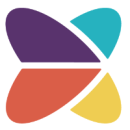Nivedha Ravi, Isaac Law, Victor Chau and Sean Mifflin of Iodine Software can call themselves more than just colleagues.
The four share another distinction that only they can claim: the first alums of “Iodine University,” the Austin-based healthcare software company’s new rotational training program.

“The plan was to integrate our college hires in a way that was empowering and would get them to self-sufficiency way quicker than the typical process,” said CTO David Chao, who was instrumental in creating the program.
Throughout, the cohort — all engineers, save for Mifflin, a client success analyst — worked on a project of their choosing, a machine learning model predicting length of stay for a hospital patient.
“We saw it as an opportunity to give case managers or hospital executives powerful data that helped them utilize various resources or plan various components of a patient’s stay, discharge planning or post-acute care planning,” Mifflin said.
“We had three main components that we had to develop: the length-of-stay prediction model, the Python web app that was running it and the application that was feeding data,’’ Law added.
And since the project was for learning purposes — rather than customer application — that freed up the team to be experimental and push their abilities.
“It allowed us to be really ambitious in the types of problems that we want to solve and solutions that we came up with,” Chau said.
Below, the Iodine U grads shared how the immersive experience laid a solid foundation for their future at the organization.
The plan was to integrate our college hires in a way that was empowering.”
A meeting of minds
During the initiative, the teammates completed three-week-long rotations with four departments: services, data science, site reliability and development.
Chau: The data science rotation provided a really deep understanding of what we do and how we manipulate all the data that we receive. It really drives all of our products and our machinery.
Mifflin: Through the data science rotation, I had the chance to make an immediate impact, because I analyzed different datasets that we had collected for COVID-19-positive patients.
Law: For the site reliability engineering (SRE) rotation, I prototyped a service that automatically deployed containers into a Kubernetes cluster. I got a great introduction to the life cycle, building containers and the power of Kubernetes.
Ravi: During the SRE rotation, I got to play with Kubernetes and understand how to use it locally. It made me even more excited to work on the projects after it, because I got to see how the entire system works together, not just the code that I write.
A Peek at the Stack
Learning machine learning
In order to successfully realize their project, the team assumed different responsibilities while leaning on the tutelage of senior teammates.
Ravi: Part of the project was building out what we call the Iodine app side — integrating the results that we got from the machine learning model into the existing application, and feeding that data to that machine learning model. It was a lot of digging into Iodine’s existing codebase.
Chau: I worked on the new web service that acted as the point of human communication between the existing code project that my colleague was working on and the machine learning model. I modeled the service that we built based on an existing project called “Phoenix.”
Mifflin: My contributions were toward the front end, like brainstorming and doing research. I set up a lot of calls with various members of hospital systems. We conducted interviews and got a really good feel for the end-user perspective.
Law: I spent most of my time working on the machine learning model. Jonathan Matthews, a data science manager, and Greg Hennigan, a data scientist, were the two biggest resources for me when I was learning how to build that model and improve it.

Sharpening skills
As the teammates completed the program, they sharpened technical acumen and padded soft skills.
Chau: After transitioning to remote work, we needed to make sure that we made effective use of whatever limited time teammates were able to give us by asking direct questions and getting immediate feedback.
Ravi: I got more experience and exposure to basic Java and Spring frameworks and understood how to build around those frameworks. Using Kubernetes and understanding the concepts behind it was really interesting, as well.
Mifflin: I got better at using SQL to find specific pieces of data. I also got pretty good at wireframing and building out prototypes we could potentially design.
Law: Before this project, I had never dealt with extracting meaning using neural networks, but I’m now using machine learning models and neural networks to extract meaning from documents. I also became a lot more familiar with our data environments.
Going Remote
Looking ahead
Completing the program provided a solid jumping-off point for their subsequent contributions to the company, teammates said.
Chau: By being in a risk-free environment, not only were we able to be more comfortable working as developers, but the ability to develop a product from the idea, all the way to fruition to a tangible product, gave us a lot of confidence in our technical skills.
Ravi: Understanding the clinical aspect, the product, the client’s success and how it all fits together — and keeping that in mind when we’re working on a day-to-day project — was a really big takeaway.
Kicking things off in an open, useful way made me more confident in my abilities.”
Law: I walked away from the project having this really clear understanding of who is responsible for what. Moving forward, that enables me to know exactly who to go to and how projects evolve and develop.
Mifflin: Being able to kick things off in such an open and useful way helped make me feel really comfortable and more confident in my abilities.
















